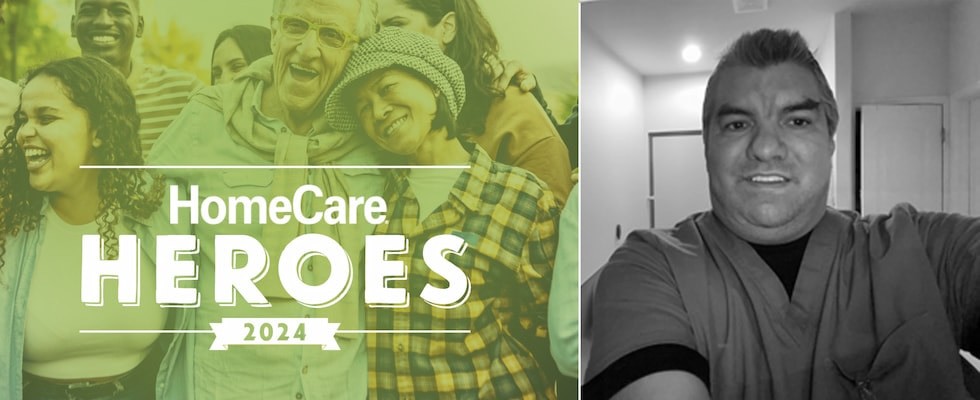
Israel Vega’s car is stocked the tools of the trade.
At any time, he at least has gauze, saline and other wound cleaner and self-adhesive wrap on hand. He just wants to be ready when he gets to see his patients, especially since he often drives hours to do so.
Vega, a registered nurse, is field nursing manager for Americare in Home Care—and that “field” moniker is no joke. With his home base well outside the city of San Antonio, Texas, and his clients spread around the region, he is always ready to travel.
But that’s an improvement over his prior life as a hospital nurse, he says.
“I like the freedom that home health offers,” Vega said. “You get to eat lunch when you want to eat lunch, you get to use the bathroom when you want. I really enjoy it, but it was a big learning curve for me.”
He also finds it satisfying because all of his patients—and all of his home health agency’s clients—are veterans. Vega didn’t serve himself, but he takes pride in caring for those who did.
“Israel’s commitment is evident in his daily efforts, as he travels up to an hour each way from his home, often enduring the sweltering heat and late hours to meet with patients. His willingness to go the extra mile exemplifies his deep sense of responsibility and compassion,” his nominator, Bianca Salazar James, wrote.
He cares for a range of clients—most are seniors, but there are also a number of younger veterans with spinal cord or other injuries. Many of his visits involve caring for people with chronic needs, such as routine catheter changes or bowel programs.
He loves it when those patients become comfortable counting on him. For example, he recalls a female patient who was very resistant to working with a male nurse at first.
“I’ve built up her trust over the years, but now if I have to help her, she doesn’t feel bad,” Vega said. “She’s okay with the health care and I like that. I like that I develop that trust with someone who normally wouldn’t want a guy doing the program.”
In general, Vega tries to get his patients to share their stories and to find out how they got their injuries; as he points out, it’s often one misstep that lands someone in a wheelchair for life. That helps him put himself in their shoes, he said.
“I definitely could empathize with what they’re going through,” Vega said. “I use that sometimes when, I wake up in the morning and I don’t feel like doing this today. You’re like, ‘You know what? You have that option. What a beautiful option that I have.”
The notion that people are depending on him drives him to work almost nonstop—he very rarely takes a day off, including weekends and holidays, saying he’d rather see a couple of patients on a Saturday morning than get a lazy start to the day.
“One of my guys I see every day—for the last two years I’ve only missed one day with him,” Vega said. Because that patient’s home health aide was coming in too late following other visits—and the man was starting to refuse help—Vega volunteered to take over the aide’s work on activities of daily living, helping him get dressed and shower along with offering clinical care.
The benefit of such dedication is that he gets to become part of the patients’ lives, Vega said.
“You meet their families and you become like part of their family in essence,” he said.
